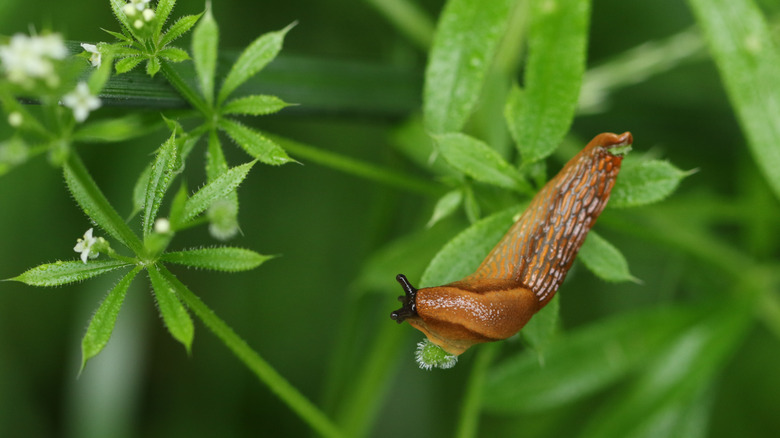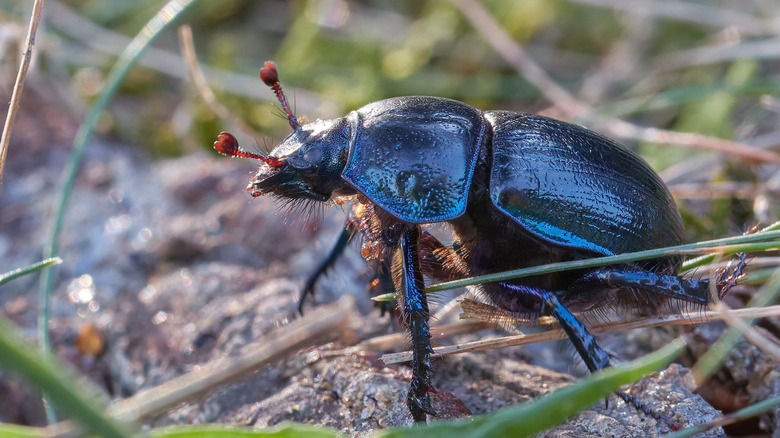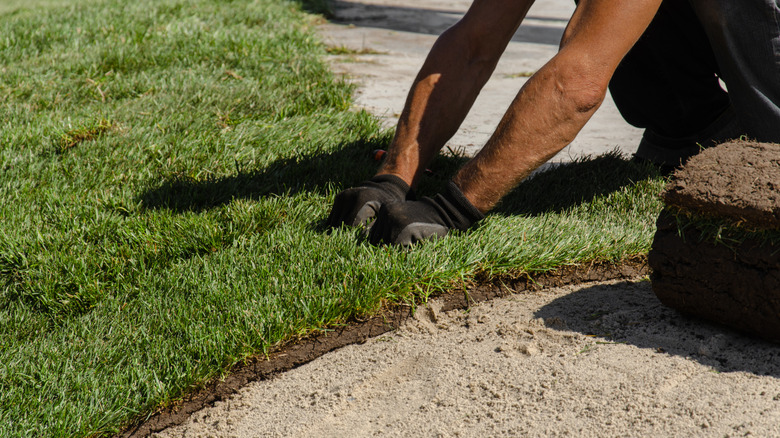The Beneficial Insect That Will Eat All The Slugs In Your Garden (And The Best Way To Attract Them)
You may have noticed those slimy slugs wreaking havoc in your garden. After their attack, leaves look chewed and plants struggle to grow. You may turn to slug pellets for a quick fix, but those come at a cost. They're expensive, harmful to birds, and wipe out beneficial insects like ground beetles; this is a common beetle you don't need to worry about finding in your garden since it's actually an ally. These fast-moving, night-hunters love eating slugs, and both adults and larvae chase them down through soil and mulch.
By protecting beetle populations, you get a natural, long-term defense against slugs without relying on chemicals. Unlike pellets, beetles don't upset your garden's balance. They patrol every night, cutting down slug numbers and giving your plants a chance to thrive. To attract them, offer ample grassy shelter and raised beds. If you'd like to take things further, here's how to get rid of slugs in the garden, and mistakes to avoid when relying on beetles.
Why ground beetles are garden protectors
You may not notice them at first, but beetles are some of the best little helpers your garden could ask for. They sneak around after dark, and both the adults and their larvae eat slugs, slug eggs, and all sorts of soft-bodied pests. A single beetle can put away about its own weight in pests in a day; that's a lot of damage control you don't have to worry about. When ground beetles are active, slugs keep their distance. So, the more beetles patrolling your soil, the fewer slimy visitors chewing through your lettuces, and other plants.
Some beetles have jaws strong enough to pull snails out of their shells. Not many predators can manage that trick, which makes them even more valuable when damp weather brings out snails. Another benefit of beetles is that they'll go after weed seeds, quietly cutting down on weeds before they ever sprout. As a result, your garden gets double protection from slugs and weeds.
How to attract ground beetles to your garden to control slugs
If you want more ground beetles working in your garden, the best thing you can do is make them feel at home. One option is to create "beetle banks" by planting grassy borders along the edges, which provide safe shelter for them. Reducing how often you till also helps. Because beetles spend so much time in the soil, frequent disturbance can set their populations back. It's also important to use insecticides wisely. Overusing sprays is actually among the common gardening mistakes that attract slugs to your yard. While the chemicals may reduce slug numbers, they also remove the very beetles that help keep pests under control. You can make your garden even more inviting by leaving a few harmless weeds, which provide extra food and cover.
Beetles naturally seek out dark, damp, and sheltered spots, which is why raised beds, clumps of perennial grasses and flowers, leaf mulch, compost piles, and even a few stones or logs along the borders are so effective. You can also plant red or white clover between rows; this will create a favorable environment and attract more beetles. Adding nectar-producing plants will also be beneficial. That's because they attract airborne predators, which push some pests down to the ground, where the beetles live.


